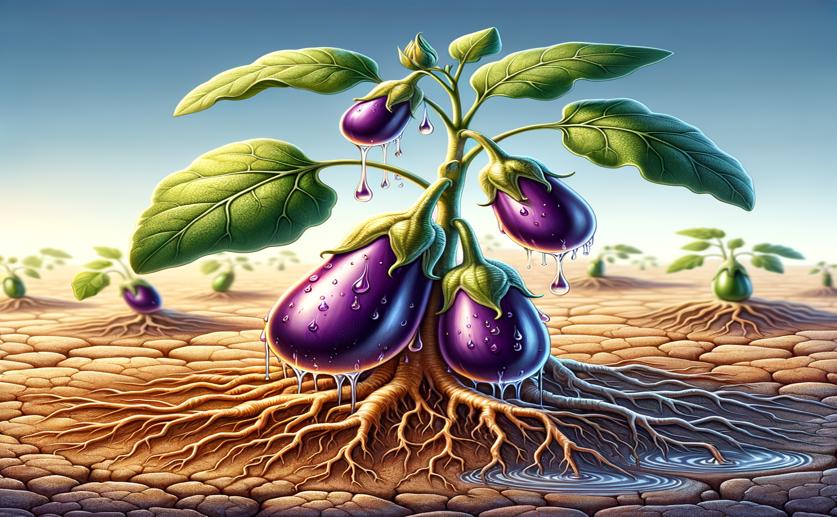
How Eggplant Plants Cope with Water Stress and Boost Antioxidants
Jim Crocker
16th June, 2024

Image Source: Natural Science News, 2024
Key Findings
- The study by the Universitat Politècnica de València evaluated various eggplant genotypes under water stress conditions
- Genotypes derived from the wild relative S. incanum showed better performance under water stress
- Genotypes with higher antioxidant levels were better able to cope with oxidative stress, suggesting these compounds play a crucial role in drought tolerance
VegetablesBiochemPlant Science
References
Main Study
1) Growth and antioxidant responses to water stress in eggplant MAGIC population parents, F1 hybrids and a subset of recombinant inbred lines
Published 15th June, 2024
https://doi.org/10.1186/s12870-024-05235-w
Related Studies
2) Plant strategies for maximizing growth during water stress and subsequent recovery in Solanum melongena L. (eggplant).
3) Transgressive Biochemical Response to Water Stress in Interspecific Eggplant Hybrids.
4) The Dawn of the Age of Multi-Parent MAGIC Populations in Plant Breeding: Novel Powerful Next-Generation Resources for Genetic Analysis and Selection of Recombinant Elite Material.
5) Molecular basis of heterosis and related breeding strategies reveal its importance in vegetable breeding.



 29th February, 2024 | Jenn Hoskins
29th February, 2024 | Jenn Hoskins